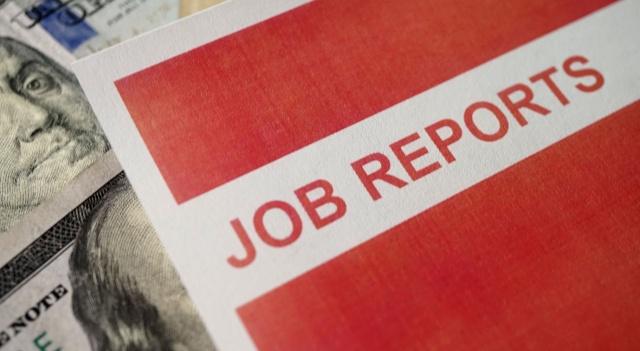
U.S. index futures fell in pre-market trading this Friday, as investors await the August jobs report for more clues about the economy.
At 5:41 AM ET, Dow Jones futures fell 143 points, or 0.35%. S&P 500 futures dropped 0.66%, and Nasdaq-100 futures fell 1.20%. The 10-year Treasury yield stood at 3.699%.
Today’s U.S. economic highlights include the jobs report, expected at 8:30 AM, with forecasts of 161,000 jobs added in August, compared to 114,000 in the previous month. Unemployment is expected to dip slightly to 4.2% from 4.3%. Hourly wage growth is anticipated to rise by 0.3%, with a 3.7% annual increase. Additionally, New York Fed President Williams speaks at 8:45 AM, followed by Governor Waller at 11 AM.
In the commodities market, oil prices stabilized as investors awaited U.S. jobs data. The market also assessed the 6.9 million-barrel draw in crude stockpiles. OPEC+ postponed planned production hikes for October and November due to falling prices and weak demand concerns. The group will maintain a 2.2 million barrel-per-day production cut until November and may adjust output as necessary.
West Texas Intermediate crude for October rose 0.01% to $69.16 per barrel, while Brent for November increased by 0.08% to $72.76 per barrel.
Gold (PM:XAUUSD) exceeded $2,500 per ounce, quoted at $2,519.27, driven by weak U.S. jobs data, signaling a potential rate cut by the Federal Reserve. The metal, up 0.8% on Thursday, could benefit further from a possible 50 basis point cut. A weaker dollar and safe-haven demand amid Middle East and Ukraine crises also supported gold prices, which have surged 20% this year, hitting a record high in August.
Dalian iron ore futures hovered near a one-year low on Friday, marking their largest weekly loss in nearly six months. Weak steel demand in China, due to the property sector’s slowdown and oversupply, has pressured ore prices. The steel market slump negatively impacts iron ore. The most-traded January iron ore contract on China’s Dalian Commodity Exchange (DCE), DCIOcv1, ended daytime trading down 0.07% at $96.55 per metric ton.
Asia-Pacific markets closed mixed on Friday. Japan’s Nikkei 225 fell 0.72% after weak household spending data, and South Korea’s Kospi dropped 1.21%. In contrast, Australia’s S&P/ASX 200 rose 0.39%. Hong Kong markets were closed due to Super Typhoon Yagi, and China’s CSI 300 declined 0.81%.
According to a Reuters poll, Japan’s economy likely grew 3.2% in the second quarter, slightly above the initial estimate of 3.1%, driven by strong capital spending and private consumption. However, external risks, such as slowdowns in the U.S. and China, could affect future growth forecasts.
Japanese household spending increased just 0.1% in July, below the forecasted 1.2%, reflecting caution amid rising prices. This may complicate the Bank of Japan’s plans to raise interest rates. Moreover, adjusted monthly spending fell 1.7%, adding uncertainty to the economic recovery.
In China, the yield curve is becoming steeper, with investors buying more short-term bonds and fewer long-term ones. The People’s Bank of China is selling long-term bonds and buying short-term ones to control rising long-term yields and maintain economic stability.
European markets are down Friday morning after four consecutive losing sessions this week.
In Germany, industrial production fell 2.4% in July, highlighting ongoing struggles after an unexpected second-quarter drop. The automotive sector was hit hardest, with Volkswagen (TG:VOW3) considering factory closures. Growth forecasts have been downgraded, with GDP expected to shrink 0.1% this year. The manufacturing sector faces prolonged structural challenges.
Volvo (TG:8JO1) and Porsche (TG:PAH3) have seen a rise in short sales, with 22% and 16% of their shares loaned out, respectively. This reflects concerns over EU tariffs on Chinese electric cars and possible Chinese retaliation. Volvo, particularly vulnerable, may face challenges with its China-made electric SUVs.
Additionally, the European Aviation Safety Agency has ordered inspections on Rolls-Royce (LSE:RR.) engines on Airbus A350-1000 (EU:AIR) aircraft after an incident involving Cathay Pacific (TG:CTY).
Next week, the U.K. will release employment and economic growth data.
Britain needs an additional $1.3 trillion in investments over the next decade to boost economic growth. New Prime Minister Keir Starmer is aiming for an annual growth rate of 2.5%, not seen since before the 2008 crisis. Investment should focus on energy, housing, and venture capital, potentially funded by the country’s pension and insurance funds.
On Thursday, the Dow Jones fell 219.22 points, or 0.54%, closing at 40,755.75, while the S&P 500 lost 0.30%, finishing at 5,503.41. The Nasdaq gained 0.25%, ending at 17,127.66 points. The ADP reported 99,000 private-sector jobs added in August, below the expected 145,000. Unemployment claims fell to 227,000. The airline sector stood out, with the NYSE Arca Airline index rising 1.9%, driven by JetBlue (NASDAQ:JBLU), which soared 7.2%.
Before the market opens, Big Lots (NYSE:BIG), ABM Industries (NYSE:ABM), Brady Corporation (NYSE:BRC), Genesco (NYSE:GCO) and BRP Inc. (NASDAQ:DOOO) will release their quarterly reports.

It looks like you are not logged in. Click the button below to log in and keep track of your recent history.